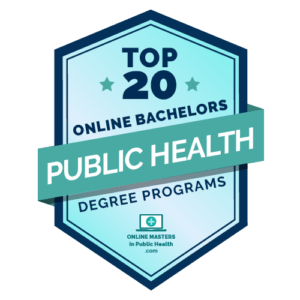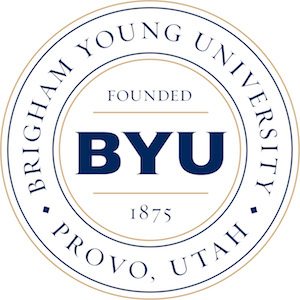 The first step on your path to obtaining a Master of Public Health degree is to first earn your bachelors. There are around 60 Bachelors in Public Health degree programs available throughout the country, so there are a few other closely-related undergraduate degrees that a student could pursue that would still lay the foundation for an MPH later on. Public health is a broad field of study where social work, research, medical care, and health education all come together. Because of that, undergrad programs in community health, health sciences, nutrition, healthcare administration, among other similar options, can all prepare students for the next step.
The first step on your path to obtaining a Master of Public Health degree is to first earn your bachelors. There are around 60 Bachelors in Public Health degree programs available throughout the country, so there are a few other closely-related undergraduate degrees that a student could pursue that would still lay the foundation for an MPH later on. Public health is a broad field of study where social work, research, medical care, and health education all come together. Because of that, undergrad programs in community health, health sciences, nutrition, healthcare administration, among other similar options, can all prepare students for the next step.
A bachelors degree in public health is available in two varieties. The Bachelor of Science in Public Health takes a more clinical approach and is more suited to careers in biostatistics or epidemiology. The Bachelor of Arts in Public Health is a better fit when you’re looking at a career path that has a more socio-cultural or socioeconomic focus, this can be a good pick for aspiring healthcare administrators or social workers. However, public health is cross-disciplinary on every level so picking one over the other will not hinder your future opportunities. Here we’ve ranked the twenty best online bachelors in public health degree programs, based on the following methodology:

1) Northeastern University
 Northeastern University is a private research university that holds the highest distinction awarded by the Carnegie Classification of Institutions of Higher Education; it is an R1 institution with the highest research activity. It was established in 1898 as the Evening Institute for Younger Men. Over a 40 year journey, the institution transformed with the addition of several schools, and day classes. By 1922, it had assumed its current title and it secured degree-granting power the following year. The New England Association of Schools and Colleges, Commission on Institutions of Higher Education accredited it in 1940. Most of Northeastern’s students live on campus in Boston, Massachusetts. The university serves over 20,000 students in total and provides them with 65 undergraduate majors to choose from, and more than 125 graduate programs.
Northeastern University is a private research university that holds the highest distinction awarded by the Carnegie Classification of Institutions of Higher Education; it is an R1 institution with the highest research activity. It was established in 1898 as the Evening Institute for Younger Men. Over a 40 year journey, the institution transformed with the addition of several schools, and day classes. By 1922, it had assumed its current title and it secured degree-granting power the following year. The New England Association of Schools and Colleges, Commission on Institutions of Higher Education accredited it in 1940. Most of Northeastern’s students live on campus in Boston, Massachusetts. The university serves over 20,000 students in total and provides them with 65 undergraduate majors to choose from, and more than 125 graduate programs.
At Northeastern University, through the College of Professional Studies, students can earn a Bachelor of Science in Human Services. There is both a full-time and part-time completion option, taking four and seven years respectively. As part of this program, you would take interesting courses such as Engaging with the Natural and Designed World; Interpreting Culture and; Power, Poverty, and Social Change. Topics covered under this degree include healthcare, health policy and law, poverty, psychology, sociology, and even clinical practice. The curriculum that was designed to prepare students to fill roles in human service agencies and community organizations also provides a strong basis to those who are just getting started.
For more information, you can visit the Northeastern University program website.
2) University of South Florida
 The University of South Florida is a public research university in Tampa, Florida. Despite having a student body of a massive 42,861 students, it is still only the fourth largest university in the state and boasts a faculty ratio of 22 to 1. USF offers more than 210 different degree options from the associates to the doctoral level. It is accredited by the Southern Association of Colleges and Schools, Commission on Colleges and it holds several additional programmatic endorsements from field-specific agencies; one of those is the Council on Education for Public Health. The public health programs at all levels have been consistently accredited for over 30 years. U.S. News & World Report ranks it among the Top 100 Public Schools, and the public health programs at the graduate level are among America’s top five.
The University of South Florida is a public research university in Tampa, Florida. Despite having a student body of a massive 42,861 students, it is still only the fourth largest university in the state and boasts a faculty ratio of 22 to 1. USF offers more than 210 different degree options from the associates to the doctoral level. It is accredited by the Southern Association of Colleges and Schools, Commission on Colleges and it holds several additional programmatic endorsements from field-specific agencies; one of those is the Council on Education for Public Health. The public health programs at all levels have been consistently accredited for over 30 years. U.S. News & World Report ranks it among the Top 100 Public Schools, and the public health programs at the graduate level are among America’s top five.
The university opened in 1956 and added the University of South Florida College of Public Health in 1984. The College of Public Health operates ten different research centers and holds the record for the largest single health survey of older Americans ever conducted. There are six highly specialized MPH programs offered online, but you’ll need a bachelors in public health to get you there. The Bachelor of Science in Public Health at USF was created with the diversity of its student’s goals in mind. Students will experience courses in health services administration, health education, epidemiology, behavioral science, environmental science, and more.
For more information, you can visit the University of South Florida program website.
3) Arizona State University
 Arizona State University is a public research university located in the Phoenix metropolitan area of Arizona. U.S. News & World Report ranked ASU as the most innovative school in America for the third year running. It is an R1: Doctoral University with the Highest Research Activity, and is fully accredited by the Higher Learning Commission. The university has more than 250 majors that students can pursue and offers over 100 different graduate degree programs. Over 10,000 students study at Arizona State’s main campus, and close to half of them are taking at least part of their coursework online; in 2017, it was reported that more than 25,000 students in total were enrolled in ASU Online. 150 of the undergraduate degrees offered can be taken at a distance. U.S. News & World Report ranks those bachelors degree programs as 4th in the nation.
Arizona State University is a public research university located in the Phoenix metropolitan area of Arizona. U.S. News & World Report ranked ASU as the most innovative school in America for the third year running. It is an R1: Doctoral University with the Highest Research Activity, and is fully accredited by the Higher Learning Commission. The university has more than 250 majors that students can pursue and offers over 100 different graduate degree programs. Over 10,000 students study at Arizona State’s main campus, and close to half of them are taking at least part of their coursework online; in 2017, it was reported that more than 25,000 students in total were enrolled in ASU Online. 150 of the undergraduate degrees offered can be taken at a distance. U.S. News & World Report ranks those bachelors degree programs as 4th in the nation.
The Bachelor of Science in Community Health at Arizona State University was created for students who want to create healthier and more sustainable communities. Faculty of the program has received countless nursing awards, as well as awards from national agencies, and they are committed to equipping you with the skills to create effective change in your community. As a student of this program, you will encounter topics like service coordination, education, monitoring, evaluation, and interventions within a community setting. Partnering with organizations and providing advocacy are also key skills. This degree can lead to positions providing health education, health promotion, care coordination, healthcare navigation, and advocacy services for patients, families, and communities, making it an excellent starting point for a long career in public health.
For more information, you can visit the Arizona State University program website.
4) Brigham Young University
 Brigham Young University operates several campuses, it is a private university that is owned and operated by the Church of Jesus Christ of Latter-day Saints. The Rexburg, Idaho campus is that one that we’ve ranked here today. There are nearly 45,000 students enrolled in degree programs at the undergraduate level at this particular branch of BYU. There are currently 107 different degrees offered through six colleges. The colleges that comprise the university are the College of Agriculture and Life Sciences; the College of Business and Communication; the College of Education and Human Development; the College of Language and Letters; the College of Performing and Visual Arts and; the College of Physical Sciences and Engineering. The university as a whole is accredited by the Northwest Commission on Colleges and Universities.
Brigham Young University operates several campuses, it is a private university that is owned and operated by the Church of Jesus Christ of Latter-day Saints. The Rexburg, Idaho campus is that one that we’ve ranked here today. There are nearly 45,000 students enrolled in degree programs at the undergraduate level at this particular branch of BYU. There are currently 107 different degrees offered through six colleges. The colleges that comprise the university are the College of Agriculture and Life Sciences; the College of Business and Communication; the College of Education and Human Development; the College of Language and Letters; the College of Performing and Visual Arts and; the College of Physical Sciences and Engineering. The university as a whole is accredited by the Northwest Commission on Colleges and Universities.
The university offers a Bachelor of Science in Public Health with a Health Education and Promotion Emphasis that is available completely online. Graduates will be eligible to take the Certified Health Education Specialist examination. Students take some foundational courses like Medical Terminology, and Introduction to Community Health before moving on to more in-depth courses. The Science Module covers Environmental Health, Epidemiology, and more. The Public Health Module covers Research Methods and Program Evaluation, Health Behavior Theories, Program Planning, and more. In the final module, General Psychology, International Health, and Health Communications finish rounding out the knowledge base that students have acquired. This curriculum was prepared to cover a little bit of everything, providing graduates with a diverse background that can carry them on to higher education with ease.
For more information, you can visit the Brigham Young University program website.
5) University of Arizona
 The University of Arizona is a public research university founded in 1885, making it the first university in the Arizona Territory. It is located in Tucson. The inaugural class of students in 1891 consisted of a mere 32 students but the university has grown to an enrollment size of 43,161 students. Degrees are offered at the bachelor’s level and up through 19 unique academic divisions. The University of Arizona is accredited by the Higher Learning Commission, holds 13 programmatic accreditations, and is one of the premier research institutions in America. It is the only institution in Arizona that is a member of the Association of American Universities, a consortium of elite research universities. The university has received recognition in several areas by publications like U.S. News & World Report, Hispanic Business Magazine, and more.
The University of Arizona is a public research university founded in 1885, making it the first university in the Arizona Territory. It is located in Tucson. The inaugural class of students in 1891 consisted of a mere 32 students but the university has grown to an enrollment size of 43,161 students. Degrees are offered at the bachelor’s level and up through 19 unique academic divisions. The University of Arizona is accredited by the Higher Learning Commission, holds 13 programmatic accreditations, and is one of the premier research institutions in America. It is the only institution in Arizona that is a member of the Association of American Universities, a consortium of elite research universities. The university has received recognition in several areas by publications like U.S. News & World Report, Hispanic Business Magazine, and more.
The University of Arizona operates the Mel & Enid Zuckerman College of Public Health, which offers several different degree programs. The Online Bachelor of Science in Public Health costs just $515 per credit and can be finished in as little as two years. The university says that their curriculum provides a unique and engaging approach to public health. Topics that students will explore throughout the course of this program range from health promotion and disease prevention to health disparities and community education. An emphasis on fieldwork ensures that students will be more solidly equipped to move on to the next step upon graduation, whether that is further schools or straight into the professional world.
For more information, you can visit the University of Arizona program website.
6) Drexel University
 Drexel University is a private research university that offers an excess of 70 undergraduate programs and more than 100 graduate level degree options. It is located in Philadelphia, Pennsylvania. The university was established in 1891 and has been steadily evolving ever since to become the Middle States Commission on Higher Education-accredited and nationally recognized institution that it is today. The student to faculty ratio is just 10 to 1 even though there are almost 25,000 students currently attending Drexel. It is a leader in distance education. Its online division received the Sloan-C award for institution-wide excellence in online education in 2010, and the United States Distance Learning Association Best Practices Awards for Distance Learning Programming in 2008. Over 100 programs can be completed online.
Drexel University is a private research university that offers an excess of 70 undergraduate programs and more than 100 graduate level degree options. It is located in Philadelphia, Pennsylvania. The university was established in 1891 and has been steadily evolving ever since to become the Middle States Commission on Higher Education-accredited and nationally recognized institution that it is today. The student to faculty ratio is just 10 to 1 even though there are almost 25,000 students currently attending Drexel. It is a leader in distance education. Its online division received the Sloan-C award for institution-wide excellence in online education in 2010, and the United States Distance Learning Association Best Practices Awards for Distance Learning Programming in 2008. Over 100 programs can be completed online.
Drexel University operates the Dornsife School of Public Health and six public health research centers and institutes. The online bachelors option at Drexel is the Bachelor of Science in Health Services Administration. Graduates of the program have gone on to work in clinics, consulting firms, health insurance organizations, hospitals and private practices, nursing homes, mental health organizations, public health departments, rehabilitation centers, and skilled nursing facilities. Civic Engagement, Health-Care Policy, Business Statistics, Computing, and Sociology are all areas that courses will delve into throughout your completion of this fully-online and asynchronous degree track. 10-week quarters allow students to take more courses over a shorter period of time, which makes this a comfortably accelerated degree so that you can put yourself on the fast-track to the career you truly want.
For more information, you can visit the Drexel University program website.
7) University of Missouri
 The University of Missouri is a large public research university colloquially known as Mizzou. This university was founded in 1839 and was the first university west of the Mississippi River, it is the largest university in Missouri with 33,239 students, it is the flagship campus of the University of Missouri System, and there’s more. It is the only Missouri university that is part of the Association of American Universities. Mizzou is a highly reputable school that comprises 20 colleges and boasts over 300 total degree programs. It is accredited by the Higher Learning Commission. Mizzou’s motto translated from Latin is “Let the Welfare of the People be the Supreme Law.”
The University of Missouri is a large public research university colloquially known as Mizzou. This university was founded in 1839 and was the first university west of the Mississippi River, it is the largest university in Missouri with 33,239 students, it is the flagship campus of the University of Missouri System, and there’s more. It is the only Missouri university that is part of the Association of American Universities. Mizzou is a highly reputable school that comprises 20 colleges and boasts over 300 total degree programs. It is accredited by the Higher Learning Commission. Mizzou’s motto translated from Latin is “Let the Welfare of the People be the Supreme Law.”
It is no shock that such a well-established university that has placed the collective well-being at its forefront for so long offers one of the best online bachelors in public health. The Bachelor of Health Science degree combines live online courses, self-paced courses, and hands-on experiential learning in this offering. Drawing from subjects such as Introduction to health professions, Introduction to research, Healthcare in the United States, Public health principles and practice, and Clinical ethics, the curriculum for this program is perfect for anyone who wants to enter into a nonclinical career or pursue a graduate program in health care, public health, or another closely related field. None of the courses feature any on-campus requirements for this degree, but some of the courses will require set login times for you to participate in live lectures.
For more information, you can visit the University of Missouri program website.
8) University of North Carolina Greensboro
 The University of North Carolina at Greensboro is a public research university located in Greensboro, North Carolina. When it first opened in 1891 it was called the State Normal and Industrial School and operated as a women’s only school for teachers. The university has evolved to be a coeducational and comprehensive university that serves over 20,000 students. UNC Greensboro currently has a selection of more than 100 undergraduate degree programs, 61 masters degree programs, and 26 doctoral degree programs from which students choose. The university is wholly accredited by the Southern Association of Colleges and Schools, Commission on Colleges and carries 12 programmatic accreditations as well. The Council on Education for Public Health is one of its additional accreditors.
The University of North Carolina at Greensboro is a public research university located in Greensboro, North Carolina. When it first opened in 1891 it was called the State Normal and Industrial School and operated as a women’s only school for teachers. The university has evolved to be a coeducational and comprehensive university that serves over 20,000 students. UNC Greensboro currently has a selection of more than 100 undergraduate degree programs, 61 masters degree programs, and 26 doctoral degree programs from which students choose. The university is wholly accredited by the Southern Association of Colleges and Schools, Commission on Colleges and carries 12 programmatic accreditations as well. The Council on Education for Public Health is one of its additional accreditors.
UNC Greensboro also offers a straightforward Bachelor of Science in Public Health online. Courses are delivered entirely at a distance and are to be completed asynchronously. Students of this program can complete their coursework whenever and wherever suits them best. The curriculum was designed with respect to the fact that public health draws from the biological, environmental, social-psychological, physical and medical sciences; the program focuses on teaching students how to develop and implement individual, group, institutional, community, and policy strategies to improve health. After program completion, UNCG offers graduate-level programs in public health, and also suggests students explore their options at The Bloomberg School of Health at Johns Hopkins University or Indiana University Bloomington.
For more information, you can visit the University of North Carolina Greensboro program website.
9) Northern Arizona University
 Northern Arizona University is a Higher Learning Commission-accredited public research university with several campuses throughout the state of Arizona. It is headquartered in the city of Flagstaff. The university comes from a humble beginning in 1899, two faculty members instructed the first 23 students that year. The first graduating class in 1901 consisted of four women. NAU now has over 150,000 alumni in the US alone and enrolls over 30,000 students across all degree levels. For its first 50 years, the university was primarily a teacher’s college but now features 158 different degree programs. The Center for World University Rankings recognizes NAU as part of the top 2.9% of institutions of higher education in the world. Times Higher Education has also recognized the university as being in the top 10% worldwide for the frequency of citations of its research. NAU is made up of seven colleges.
Northern Arizona University is a Higher Learning Commission-accredited public research university with several campuses throughout the state of Arizona. It is headquartered in the city of Flagstaff. The university comes from a humble beginning in 1899, two faculty members instructed the first 23 students that year. The first graduating class in 1901 consisted of four women. NAU now has over 150,000 alumni in the US alone and enrolls over 30,000 students across all degree levels. For its first 50 years, the university was primarily a teacher’s college but now features 158 different degree programs. The Center for World University Rankings recognizes NAU as part of the top 2.9% of institutions of higher education in the world. Times Higher Education has also recognized the university as being in the top 10% worldwide for the frequency of citations of its research. NAU is made up of seven colleges.
Northern Arizona University has an online Bachelor of Science in Health Sciences in Public Health. It is expertly designed to be as flexible as possible so that students can manage their hectic schedules while learning the full scope of knowledge that they need to advance their career and education in the field of public health. Students will learn about in-depth topics like injury prevention, disease, mental health, drugs, environmental health, public health, nutrition, current issues, theories, physical activity, and maternal, child and sexual health as well as the broader skills like legal and ethical conduct, professional practice, communication, collaboration, respect, and commitment that they’ll need to apply what they’ve learned effectively. This program features a generous transfer policy that allows students to bring in up to 64 credits.
For more information, you can visit the Northern Arizona University program website.
10) Kent State University
 Kent State University, established in 1910, is a public research university based in Kent, Ohio. Like many other American universities, it began as a teacher-training institution. It didn’t take long for Kent to set its expansion in motion; it was accredited by the Higher Learning Commission in 1915 and went on to earn its university status in 1935. It is the largest university in Ohio by enrollment, providing 363 degree programs to 30,167 students. The Carnegie Foundation regards Kent as one of the top public research universities and one of the top universities for community engagement in America. Kent State University is made up of 11 colleges and schools. Its College of Public Health was opened in 2009 and was the first in Ohio to have a Bachelor of Science in Public Health as part of the curriculum. The college is an Associate Member of the Association of Schools of Public Health and is actively seeking accreditation through the Council on Education for Public Health.
Kent State University, established in 1910, is a public research university based in Kent, Ohio. Like many other American universities, it began as a teacher-training institution. It didn’t take long for Kent to set its expansion in motion; it was accredited by the Higher Learning Commission in 1915 and went on to earn its university status in 1935. It is the largest university in Ohio by enrollment, providing 363 degree programs to 30,167 students. The Carnegie Foundation regards Kent as one of the top public research universities and one of the top universities for community engagement in America. Kent State University is made up of 11 colleges and schools. Its College of Public Health was opened in 2009 and was the first in Ohio to have a Bachelor of Science in Public Health as part of the curriculum. The college is an Associate Member of the Association of Schools of Public Health and is actively seeking accreditation through the Council on Education for Public Health.
The Bachelor of Science in Public Health at Kent State University gives students the choice of four unique concentrations in Allied Health, Clinical Trials Research, Health Promotion and Education, and Health Services Administration. Each of the tailored programs seamlessly combines theory and practice in a way that adequately prepares students for whatever their next step in public health may be. All of the degree tracks share the same backbone but additional courses branch out into the selected field and give students a deeper perspective into the aspects of public health that matter most to them and will positively impact their academic and professional future. Coursework is entirely online and students won’t have to come to campus at any point to earn this BPH. Kent State University also has an online Masters in Public Health for students who want to seamlessly transition after earning their BPH.
For more information, you can visit the Kent State University program website.
11) University of South Dakota
 Not much comes to mind when a person thinks of Vermillion, South Dakota, which is the hometown of this university. The University of South Dakota is a public research university that was established in 1862, predating the state by almost 30 years. It is comprised of the College of Arts and Sciences; the Beacom School of Business; the School of Education; the College of Fine Arts; the School of Health Sciences; the School of Law and; the School of Medicine. The Schools of Law and Medicine are the only ones of their kind in the state. The Higher Learning Commission accredits the university, which throughout its history has produced 17 Truman Scholars, 10 Rhodes Scholars, and even a Nobel Laureate. Just over 10,000 students are enrolled in the available 268 degree programs that span from the associates to doctorate level.
Not much comes to mind when a person thinks of Vermillion, South Dakota, which is the hometown of this university. The University of South Dakota is a public research university that was established in 1862, predating the state by almost 30 years. It is comprised of the College of Arts and Sciences; the Beacom School of Business; the School of Education; the College of Fine Arts; the School of Health Sciences; the School of Law and; the School of Medicine. The Schools of Law and Medicine are the only ones of their kind in the state. The Higher Learning Commission accredits the university, which throughout its history has produced 17 Truman Scholars, 10 Rhodes Scholars, and even a Nobel Laureate. Just over 10,000 students are enrolled in the available 268 degree programs that span from the associates to doctorate level.
The Online Bachelor of Science in Health Sciences is interdisciplinary and flexible, giving students the best of both worlds with a rigorous education that they can obtain entirely online and according to their schedules. USD has six different academic pathways for this degree including Pre-Professional Studies, Health Care Studies, Health Care Advancement Studies, Undergraduate Clinical Informatics, Undergraduate Public Health, and Undergraduate Research. The Public Health option provides foundational knowledge of public health principles, epidemiology, and global health issues that students can carry with them to the next level of their education, or use as the necessary tools to broaden their career horizons. Those students that are pursuing an online degree pay a low tuition rate of just $335.00 per credit hour.
For more information, you can visit the University of South Dakota program website.
12) California Baptist University
 California Baptist University is a private Christian university that is operated by the California Southern Baptist Convention and accredited by the Western Association of Schools and Colleges. It was founded in El Monte, California in 1950 and received its charter four years later. As the curriculum and student body grew, the campus seemed to shrink. To accommodate the new growth, it relocated to its present-day location in Riverside, California. There are eleven school and colleges that operate under Cal Baptist and through those divisions, the university confers degrees at the associates, bachelors, masters, and doctoral levels. The university serves almost 10,000 students in total. Almost half of the students are taking at least a portion of their degree online, and about a quarter of them are doing so entirely online.
California Baptist University is a private Christian university that is operated by the California Southern Baptist Convention and accredited by the Western Association of Schools and Colleges. It was founded in El Monte, California in 1950 and received its charter four years later. As the curriculum and student body grew, the campus seemed to shrink. To accommodate the new growth, it relocated to its present-day location in Riverside, California. There are eleven school and colleges that operate under Cal Baptist and through those divisions, the university confers degrees at the associates, bachelors, masters, and doctoral levels. The university serves almost 10,000 students in total. Almost half of the students are taking at least a portion of their degree online, and about a quarter of them are doing so entirely online.
The Bachelor of Science in Public Health degree program available through CBU online typically takes students 16 months from start to finish. The cost per unit is $566. Emergency services, disaster preparedness, program planning and evaluation, academic and applied research methods, and NIH grant writing are just some of the skills that this degree program seeks to equip students with through its rigorous academic training that is accessible from anywhere in the country. All of the faculty of the program hold terminal degrees in the field of Public Health and come from varied experiential backgrounds so that students gain unique perspectives as they work through the course material. Online students will also have access to an academic advisor as they work towards their BPH online that can help determine the best academic degree plan for them and provide consistent support in navigating their academic career to graduation.
For more information, you can visit the California Baptist University program website.
13) University of West Florida
 The University of West Florida is a public university that falls under the State University System of Florida. The campus, which is the third largest in the system, is in Pensacola, Florida. UWF was founded in 1963 as the same institution it is today. The first graduation was held in 1968 where just under 60 students received degrees. A year later, the Southern Association of Colleges and Schools, Commission on Colleges accredited the university, which is organized into five academic divisions. The colleges that comprise UWF are the College of Arts, Social Sciences, and Humanities; the College of Business; the College of Education and Professional Studies; the College of Health and; the Hal Marcus College of Science and Engineering. UWF has a student body of roughly 13,000 and provides degree options from the associates to doctoral levels.
The University of West Florida is a public university that falls under the State University System of Florida. The campus, which is the third largest in the system, is in Pensacola, Florida. UWF was founded in 1963 as the same institution it is today. The first graduation was held in 1968 where just under 60 students received degrees. A year later, the Southern Association of Colleges and Schools, Commission on Colleges accredited the university, which is organized into five academic divisions. The colleges that comprise UWF are the College of Arts, Social Sciences, and Humanities; the College of Business; the College of Education and Professional Studies; the College of Health and; the Hal Marcus College of Science and Engineering. UWF has a student body of roughly 13,000 and provides degree options from the associates to doctoral levels.
The University of West Florida has two Bachelor of Science in Health Sciences that students can take online. One of them is with a focus in Health Care Administration and the other is with a focus in Public Health. While UWF doesn’t guarantee admission into any of its graduate-level offerings for those who complete this program, it does highlight the fact that the courses are designed to be just the beginning for what a student goes on to learn about their field. Some of the important topics that you learn as part of this program are Medical Disaster Management, Data Analysis in the Health Sciences, Epidemiology of Infectious Disease, Fundamentals of Occupational Safety and Health, and several others. Some electives can be switched out for different advisor-approved courses that are better suited to your desired outcomes, making this degree that much more flexible.
For more information, you can visit the University of West Florida program website.
14) Oakland University
 Oakland University is located in Rochester Hills, Michigan. It is a public research university that was founded in 1957 as part of Michigan State University. It was accredited in 1966 by the Higher Learning Commission and has been operating independently as Oakland University since 1970. There are 132 bachelors degree programs and 138 graduate programs from which students can choose. There are seven main schools and colleges that are part of Oakland, and in addition to those, the university also operates 13 research centers and institutes. Oakland University has just over 20,000 students and boasts a student to faculty ratio of 21 to 1. Only 18% of the students participate in the several options for distance learning at Oakland.
Oakland University is located in Rochester Hills, Michigan. It is a public research university that was founded in 1957 as part of Michigan State University. It was accredited in 1966 by the Higher Learning Commission and has been operating independently as Oakland University since 1970. There are 132 bachelors degree programs and 138 graduate programs from which students can choose. There are seven main schools and colleges that are part of Oakland, and in addition to those, the university also operates 13 research centers and institutes. Oakland University has just over 20,000 students and boasts a student to faculty ratio of 21 to 1. Only 18% of the students participate in the several options for distance learning at Oakland.
The online degree program that Oakland has ranked for is the only one of its kind on this list, and it is a Bachelor of Science in Environmental Health and Safety. While this sounds pretty different, the goals of the degree are to prepare students to evaluate and eliminate or control hazards which expose people, property or the environment to danger or harm once they’ve graduated. Basic sciences and behavioral science subjects are explored, similar to those that other public health undergrads would encounter. To expand on those subjects, the curriculum also includes the introduction to industrial hygiene and occupational safety concepts. This degree is offered through Oakland’s Department of Public and Environmental Wellness. Students are able to complete the major course requirements fully online and will have opportunities for experiential learning through internships, cooperative education, and a Capstone Course. Other good choices at Oakland include the Wellness and Health Promotion program, and a traditional Public Health program.
For more information, you can visit the Oakland University program website.
15) Western Kentucky University
 Western Kentucky University is a public university that is accredited by the Southern Association of Colleges and Schools, Commission on Colleges. It enrolls over 20,000 students across its College of Education and Behavioral Sciences; Gordon Ford College of Business; Ogden College of Science And Engineering; Potter College of Arts and Letters; University College and; College of Health and Human Services. It was founded by the Commonwealth of Kentucky in the year 1906 in Bowling Green, Kentucky. There are 80 majors and 70 minors offered at the undergraduate level and a total of 13 graduate degree programs. One of those graduate programs is the largest master’s degree program in folklore offered in America. Many of the degrees can be completed online, and WKU offers almost 2,000 online courses each year; 49% of the university’s students are enrolled in at least one of those courses. Payscale, CollegeNet, Forbes, and U.S. News & World Report have all given recognition to the university over the past ten years.
Western Kentucky University is a public university that is accredited by the Southern Association of Colleges and Schools, Commission on Colleges. It enrolls over 20,000 students across its College of Education and Behavioral Sciences; Gordon Ford College of Business; Ogden College of Science And Engineering; Potter College of Arts and Letters; University College and; College of Health and Human Services. It was founded by the Commonwealth of Kentucky in the year 1906 in Bowling Green, Kentucky. There are 80 majors and 70 minors offered at the undergraduate level and a total of 13 graduate degree programs. One of those graduate programs is the largest master’s degree program in folklore offered in America. Many of the degrees can be completed online, and WKU offers almost 2,000 online courses each year; 49% of the university’s students are enrolled in at least one of those courses. Payscale, CollegeNet, Forbes, and U.S. News & World Report have all given recognition to the university over the past ten years.
The Council on Education for Public Health accredits the baccalaureate programs in public health at Western Kentucky University. Bachelors degrees in Health Care Administration, Health Information Management, and Health Sciences are all offered online through WKU’s expertly crafted distance-education division; each of these has its own list of benefits and would provide instrumental knowledge to anyone interested in the field of public health. The program we are recognizing today is the Bachelor of Science in Health Sciences with a Health Services Leadership & Management concentration. Public health, psychology, biology, ethics and healthcare administration are all pieces of the curriculum for any Health Sciences degree. This particular concentration takes that a step further and covers health data, information systems, finance, business, leadership, ethics, nutrition, and so much more. This is one of the most richly varied curriculums in this ranking, allowing students to curate the perfect courseload, and would be an excellent opportunity for any student regardless of what their ideal end result may be.
For more information, you can visit the Western Kentucky University program website.
16) University of Southern Indiana
 The University of Southern Indiana, or just USI, is a public research university located in Vanderburgh County, Indiana. It was originally established as a regional campus of Indiana State University and operated that way throughout its first 20 years. In 1985, the university took on its current name received its charter as its own four-year institution. It is accredited by the Higher Learning Commission and holds 9 additional programmatic accreditations. The university boasts more than 70 undergraduate majors; at the graduate level, there are 13 masters programs, and the university launches its second doctorate program in the coming fall semester (2018). Upwards of 40,000 students have graduated since 1971, and there are 10,668 enrolled right now. The online graduate programs, particularly in the field of nursing, have been recognized for exemplary faculty, student engagement, admissions selectivity, and more. There are 16 online degrees at USI; 42% of undergraduate students are taking at least one online course, and despite the fact that there are only 10 fully-online graduate options, 65% of graduate level students are studying entirely online.
The University of Southern Indiana, or just USI, is a public research university located in Vanderburgh County, Indiana. It was originally established as a regional campus of Indiana State University and operated that way throughout its first 20 years. In 1985, the university took on its current name received its charter as its own four-year institution. It is accredited by the Higher Learning Commission and holds 9 additional programmatic accreditations. The university boasts more than 70 undergraduate majors; at the graduate level, there are 13 masters programs, and the university launches its second doctorate program in the coming fall semester (2018). Upwards of 40,000 students have graduated since 1971, and there are 10,668 enrolled right now. The online graduate programs, particularly in the field of nursing, have been recognized for exemplary faculty, student engagement, admissions selectivity, and more. There are 16 online degrees at USI; 42% of undergraduate students are taking at least one online course, and despite the fact that there are only 10 fully-online graduate options, 65% of graduate level students are studying entirely online.
The University of Southern Indiana’s College of Nursing and Health Professions offers students a Bachelor of Science in Health Services that can be completed online. There is a generalist option as well as a specialty option. Specialties that could be applied in the realm of public health are the Health Administration, Worksite Wellness and Health Promotion, or even Long Term Care Administration depending on how you want to use your degree in the professional sphere. USI does offer Public Health as a major and a minor as well. Core courses cover The Healthcare Delivery System, Biostatistics, and Ethics and Healthcare in a Pluralistic Society. The Public Health Specialty adds depth to the things you’ll learn in those courses with additional topics like Community Health Education, Environmental Health, and Epidemiology. If your calling is more towards the clinical aspects of public health, there are electives in medical microbiology and chemistry.
For more information, you can visit the University of Southern Indiana program website.
17) National University
 National University was founded in 1971 to fill the need for more accessible education for working adults. It is a private institution of higher education that has campuses throughout the state of California, one location in Nevada, and operates its main campus is in La Jolla, California. The constituents of the university are the College of Letters and Sciences; the School of Business and Management; the Sanford College of Education; the School of Engineering and Computing; the School of Health and Human Services and; the School of Professional Studies. National University is accredited as a whole by the Western Association of Schools and Colleges, Senior College and University Commission. There are 17,192 students enrolled at NU, with 67% of those students enrolled only in distance education. NU has been offering online classes since they were invented, and now has over 1,500 available each year. More than 100 of the degree programs at the undergraduate and graduate levels can be done completely online.
National University was founded in 1971 to fill the need for more accessible education for working adults. It is a private institution of higher education that has campuses throughout the state of California, one location in Nevada, and operates its main campus is in La Jolla, California. The constituents of the university are the College of Letters and Sciences; the School of Business and Management; the Sanford College of Education; the School of Engineering and Computing; the School of Health and Human Services and; the School of Professional Studies. National University is accredited as a whole by the Western Association of Schools and Colleges, Senior College and University Commission. There are 17,192 students enrolled at NU, with 67% of those students enrolled only in distance education. NU has been offering online classes since they were invented, and now has over 1,500 available each year. More than 100 of the degree programs at the undergraduate and graduate levels can be done completely online.
The Bachelor of Science in Public Health is unsurprisingly available entirely online and presented asynchronously, congruous with the school’s commitment to accessible yet high-quality education. Graduates of the program will be eligible to sit for the Certified Health Education Specialists exam. Core public health disciplines are at the root of this program’s design so that when students branch out to learn more in-depth about either the social or scientific aspects of public health, they will be able to seamlessly build on what they’ve learned. Psychology, sociology, drug use, human sexuality, culture, behavior, and more are part of the course load, designed to help you understand what lies beneath a community and makes it tick so you can lead the way for change. Anatomy, microbiology, health informatics, biostatistics, and epidemiology teach students the more technical skills associated with collective and analyzing data about community health. The seeming gap between these two sides of public health is bridged with courses like Program Planning & Evaluation, or Health Promotion Strategies & Tactics. National University approaches public health from every angle so that regardless of what you choose, you have a clear view of where you’re going next.
For more information, you can visit the National University program website.
18) Youngstown State University
 Youngstown State University is a public research university named after the city that houses it, Youngstown, Ohio. YSU traces its roots back to 1908 when a local YMCA established a school within the existing Youngstown Association School. In 1921, the two became one cohesive institution and started to grow. The Higher Learning Commission accredited the school in 1945, and it finally became Youngstown State University in 1967. There are more than 100 options for undergraduate majors, 35 masters programs, and a variety of doctorates at YSU or through a partnership of YSU and a local university. 12,643 attend the university and 11% of them are earning their whole degree online; an additional 17% are taking at least one course online.
Youngstown State University is a public research university named after the city that houses it, Youngstown, Ohio. YSU traces its roots back to 1908 when a local YMCA established a school within the existing Youngstown Association School. In 1921, the two became one cohesive institution and started to grow. The Higher Learning Commission accredited the school in 1945, and it finally became Youngstown State University in 1967. There are more than 100 options for undergraduate majors, 35 masters programs, and a variety of doctorates at YSU or through a partnership of YSU and a local university. 12,643 attend the university and 11% of them are earning their whole degree online; an additional 17% are taking at least one course online.
The Bachelor of Science in Applied Science in Public Health at YSU is an accelerated asynchronous program that doesn’t require any trips to campus. The program covers the nationally recognized Public Health Core Competencies, which are public health, community health planning and promotion, and environmental health and safety. Students can customize their course of study through two concentrations, which are in Health Education/Health Promotion or Environmental Health and Safety. Taking the individual needs of students one step further, minors are offered in public health, community health planning and promotion, and environmental health and safety. Graduates of the program will have a profound understanding of the key components of public health, have mastered skills and concepts relevant to their desired career path, and will be eligible to become a Certified Health Education Specialist
For more information, you can visit the Youngstown State University program website.
19) Southern New Hampshire University
 Southern New Hampshire University is a private nonsectarian university situated between the cities of Manchester, and Hooksett, New Hampshire. By enrollment, SNHU is the largest institution of higher education in New Hampshire. There are nearly 75,000 students enrolled at the university, but only 14% of them attend any traditional courses. Southern New Hampshire University is most widely known for its online programs. There are 245 online degree offerings, which has lead to it being one of the most rapidly-growing universities in America. The university is often confused for being a for-profit institution, but it is actually a nonprofit and is fully accredited by the New England Association of Schools and Colleges, Commission on Institutions of Higher Education. A surprising fact about the university is that it was actually founded in 1932.
Southern New Hampshire University is a private nonsectarian university situated between the cities of Manchester, and Hooksett, New Hampshire. By enrollment, SNHU is the largest institution of higher education in New Hampshire. There are nearly 75,000 students enrolled at the university, but only 14% of them attend any traditional courses. Southern New Hampshire University is most widely known for its online programs. There are 245 online degree offerings, which has lead to it being one of the most rapidly-growing universities in America. The university is often confused for being a for-profit institution, but it is actually a nonprofit and is fully accredited by the New England Association of Schools and Colleges, Commission on Institutions of Higher Education. A surprising fact about the university is that it was actually founded in 1932.
SNHU is highly popular for its vast selection of accredited, flexible, and affordable online degree programs. The Bachelor of Science in Public Health costs $960 per course, which is among the lowest rates nationwide. The curriculum is based on the standards set forth by the Council on Education for Public Health and is working towards specialized accreditation from the agency. This program can be completed entirely at your own pace thanks to the asynchronous delivery through six 8-week terms per year; but the increased independence won’t cost you the opportunity to take advantage of resources like consistent academic and career support from advisors that specialize in your area of study, and expert instruction from educated and experienced faculty. Courses included in the core curriculum will expose students to topics like epidemiology, research and assessment, social and behavioral health, education and communication, and more. You can customize your career trajectory by tailoring your 27 free elective credits to your particular passions and goals.
For more information, you can visit the Southern New Hampshire University program website.
20) University of Maryland University College
![]() The University of Maryland University College is a public university based in Adelphi, Maryland. It is a member-institution of the University System of Maryland and is accredited by the Middle States Commission on Higher Education. UMUC is among the largest distance-learning institutions in the world and helped shape distance-education as we know it today; there are more than 90,000 people enrolled around the globe with access to over a hundred academic programs from the associates to doctorate levels, including professional certificates. UMUC started as the College of Special and Continuation Studies at the University of Maryland and it evolved into an independent institution over time. Transfer policies allow for work experience, prior learning, and military training to be considered for credit, and the self-paced presentation of the coursework lets students be in control of earning their degree. Tuition rates are also well below the national average at $289 per credit for residents and $499 per credit for those out of state. Financial aid and other discount opportunities are also available.
The University of Maryland University College is a public university based in Adelphi, Maryland. It is a member-institution of the University System of Maryland and is accredited by the Middle States Commission on Higher Education. UMUC is among the largest distance-learning institutions in the world and helped shape distance-education as we know it today; there are more than 90,000 people enrolled around the globe with access to over a hundred academic programs from the associates to doctorate levels, including professional certificates. UMUC started as the College of Special and Continuation Studies at the University of Maryland and it evolved into an independent institution over time. Transfer policies allow for work experience, prior learning, and military training to be considered for credit, and the self-paced presentation of the coursework lets students be in control of earning their degree. Tuition rates are also well below the national average at $289 per credit for residents and $499 per credit for those out of state. Financial aid and other discount opportunities are also available.
The Bachelor of Science in Health Services Management degree program from UMUC allows all coursework to be completed online, and for local students, there are optional blended courses. This program is a great option for those of you who want to find your footing in the field of public health is that it will provide you with the fundamental tools of effective management in the dynamic healthcare environment. Another goal of this program is to teach students to think critically and analyze healthcare trends so that they can push innovation. Courses will range from the basics of business and financial management to ethical and legal dilemmas one may face in providing healthcare services. Healthcare trends and emerging technology, and more importantly, how to analyze those things and apply existing healthcare data to the decision-making process are all things you’ll learn in the comprehensive curriculum. Employers, industry experts, and scholars have contributed to the creation of this degree that combines theory and real-world application to paint a full picture of public health.
For more information, you can visit the University of Maryland University College program website.